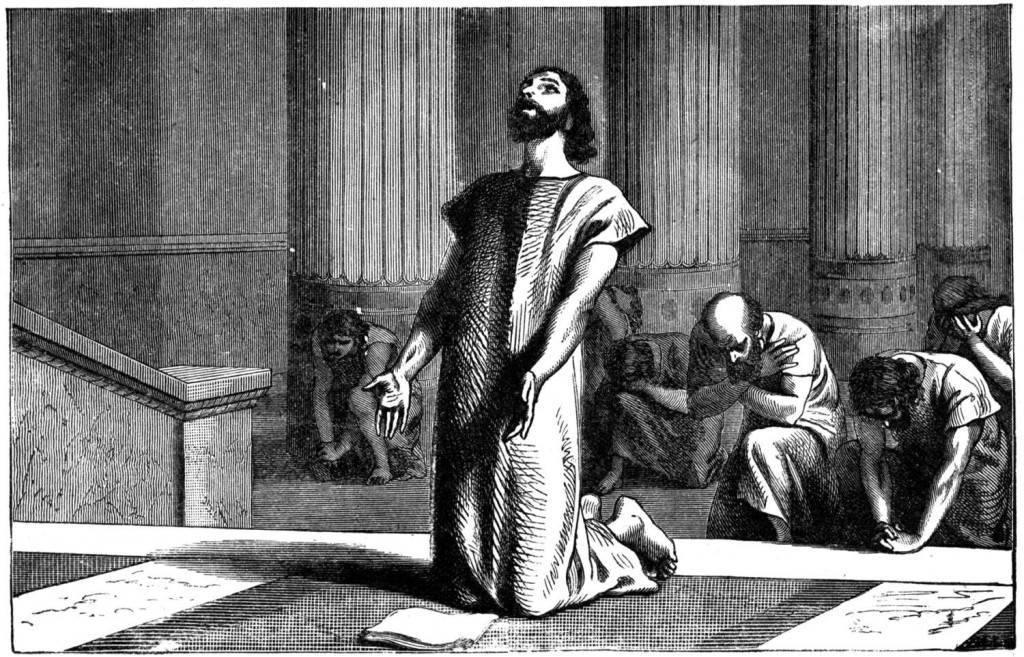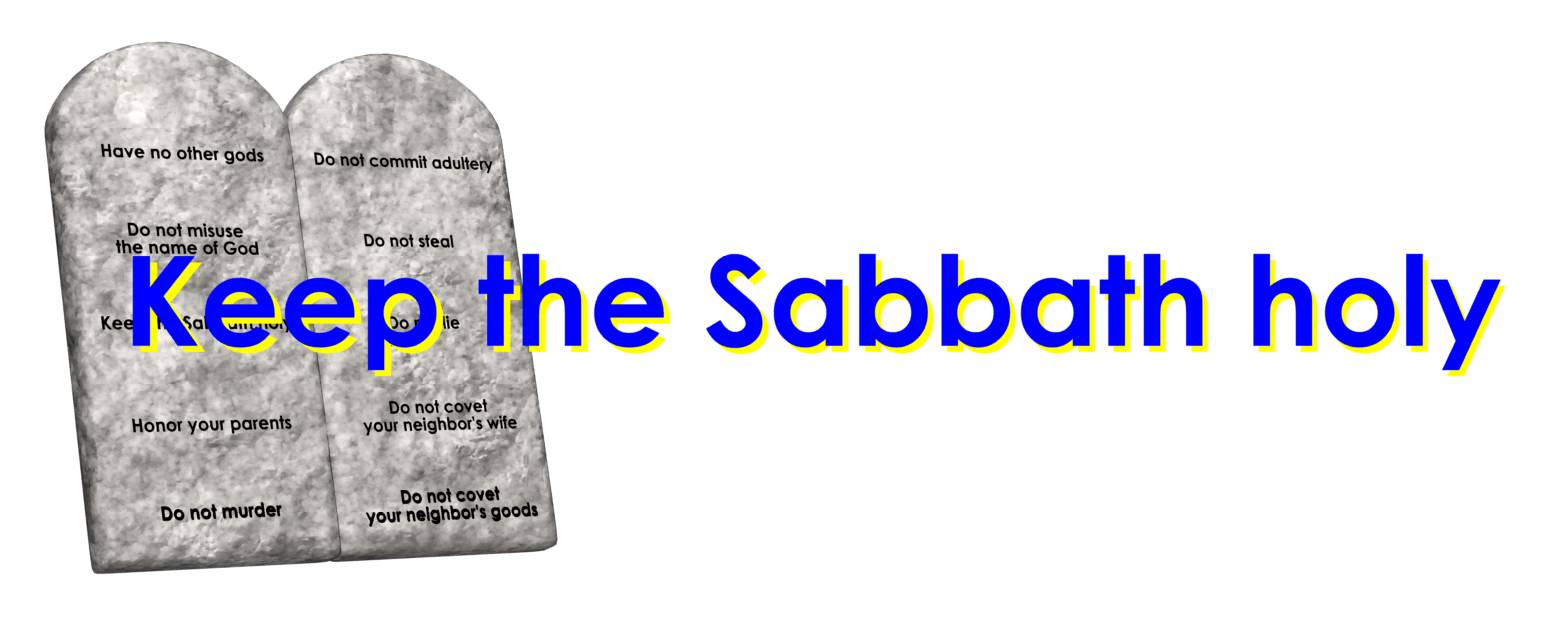In this video, we will learn how the children of Israel’s deliverance from Egypt and trek to Mount Sinai where YHVH gave them his instructions in righteousness in preparation for entering the Promised Land contains the full gospel message. It is the story of our spiritual journey, and gives us inisghts into what lies ahead for us en route to the Promised Land of our spiritual and eternal inheritance through Yeshua the Messiah.
Tag Archives: Torah
What’s involved in coming into YHVH’s Presence? Much food for thought!
Exodus 19:10, Consecrate them today. How did Israel, as a bride-to-be, prepare herself to meet with YHVH? How are YHVH’s people now to be preparing themselves for their spiritual marriage with Yeshua? (Compare Exodus 19:10 with Revelation 19:7–9.) What is the righteousness of the saints (mentioned in Rev 19:8)? Righteousness is defined in Psalms 119:172 as, “… all thy [Torah] commandments are righteousness.” If what the Scriptures define as righteousness (i.e., the Torah) was “nailed to the cross,” as is popularly taught, then who is in error? The Scriptures or those who teach against YHVH’s Torah laws?
Discussion A. Why is it essential to study the example of the children of Israel preparing themselves to come into the presence of YHVH in Exodus 19? After all, if Yeshua did it all for us, we can just come boldly before the Father’s throne anytime, anyway we want, right (Heb 4:16)?
Let’s explore this concept a little to see what the Bible has to say about it.
Paul says in I Corinthians 10:11,
Now all these things happened to them [i.e., the children of Israel] as examples, and they were written for our admonition, upon whom the ends of the ages have come. (See also Rom 15:4.)
The writer of Hebrews has something similar to say in his prefatory remarks to his statement in Hebrews 4:16 about coming boldly before the throne of YHVH through the merits of the sinless righteousness of Yeshua our High Priest. In the preceding several verses, the author draws upon the example of the children of Israel (Heb 4:1–10) as an example for us not to follow. They were a faithless and disobedient lot in that they rebelled against the Torah-word of Elohim.
Then in Hebrew 4:11, the author starts with the connecting word “therefore,” indicating Continue reading
An Overview of YHVH’s Marriage to Israel as Fulfilled in the Lives of Redeemed Believers
Exodus 19–31 and the Marriage of YHVH to Israel—Types and Shadows
YHVH married ancient Israel at Mount Sinai.
Read Ezekiel 16:1–14
Redeemed believers are preparing to be the spiritual bride of Yeshua.
For I am jealous over you with godly jealousy: for I have espoused you to one husband, that I may present you as a chaste virgin to Messiah. (2 Cor 11:2)
Let us be glad and rejoice, and give honour to him: for the marriage of the Lamb is come, and his wife hath made herself ready. And to her was granted that she should be arrayed in fine linen, clean and white: for the fine linen is the righteousness of saints. And he saith unto me, “Write, Blessed are they which are called unto the marriage supper of the Lamb.” And he saith unto me, “These are the true sayings of Elohim.” (Rev 19:7–9)
What are the prophetic implications of and spiritual parallels between YHVH’s first marriage to ancient Israel and YHVH-Yeshua’s upcoming marriage to his bride—the saints who keep his (Torah) commandments and have faith in him (Rev 12:17; 14:12)?
In his Parable of the Ten Virgins, Yeshua likens his bride to the five wise virgins who had oil in their lamps. Oil is a Hebraism for the Spirit of Elohim and the Torah. In other words, the prospective bride of Yeshua will walk in the Spirit of Elohim and the truth of Torah, which Yeshua tells us is a mandatory requirement if one is to have a relationship with YHVH (John 4:23–24; 1 John 2:3–6). We learn from the fact that since five foolish virgins who weren’t allowed into the wedding supper that not all redeemed believers will be the bride of Yeshua. Some believers will be the least in YHVH’s kingdom and some will be the greatest (Matt 5:19). According to Yeshua, how obedient one is to the Torah will determine one’s level of rewards in his eternal kingdom (Matt 5:19).
Between Exodus 19 and 24, we find recorded the steps Israel took to enter into a marital Continue reading
Elohim is serious about the Sabbath!
Exodus 16:4–30, The Sabbath. This chapter chronicles YHVH’s efforts to literally force an irreverent, unruly and disobedient nation to keep the seventh day Sabbath. He did so in a most poignant way—through food and hunger. It’s as if he were instructing the stiff-necked and rebellious Israelites that if they refused to follow his Sabbath instructions, they would literally go hungry. “If you don’t obey me, you don’t eat.” This shows the gravity the Creator places on the Sabbath command. Yet despite these clear instructions, most in the Babylonian church today, like the rebellious children of Israel of old, refuse to obey YHVH’s clear instructions regarding the Sabbath. Instead, they prefer to believe the doctrines of men proffered to them by their spiritual leaders that purport to invalidate the Sabbath command. Paul’s sage observation in Romans 8:7 describes the situation perfectly: “Because the carnal mind is enmity against Elohim: for it is not subject to the [Torah] law of Elohim, neither indeed can be.” In our day, the same question can still be asked of followers of Yeshua that YHVH asked of the Israelites at that time, “How long do you reuse to keep my commandments and my laws?” (Exod 16:28).
This chapter is almost entirely dedicated to instructions pertaining to preparing for the Sabbath. This shows the priority that YHVH places on Sabbath observance for his people. Also note that these instructions are given many weeks before the official giving of the Torah (or law of Moses) at Mount Sinai. This is but one of the many examples of YHVH revealing key aspects of his Torah-law before he gave it the Israelites in one legal codified corpus at Mount Sinai.
Exodus 16:4, On the sixth day…prepare. (Also note verse 23.) The sixth day of the week was to be a day of preparation for the Sabbath, so that the Sabbath rest could be complete allowing for man to fully focus on being spiritually edified in the presence of his Creator without the distractions of food preparation and the other mundane duties of life.
Exodus 16:29, Let every man remain. The essential point of this prohibition is to not go out and gather manna on the Sabbath, but to rest on this day from the routine work of supporting one’s family. This command didn’t prohibit the Israelites from gathering together on the Sabbath for purposes of teaching, worship, prayer, fellowship or spiritual edification or else YHVH’s command for the Israelites to gather together on the Sabbath for a “holy convocation” (Lev 23:2) would be contradictory. Were this command merely an injunction to not leave one’s dwelling place on the Sabbath, then Yeshua and the apostles visiting synagogues on the Sabbath would have been a violation of this Torah command. Isaiah 58:13 could be viewed as the corollary passage to Exodus 16:29. There YHVH instructs his people not to profane the Sabbath by doing their own pleasure, not doing their own ways, and not speaking their own words on this day. Instead, it is a holy day to YHVH and a day to focus on and honor him.
One Law for All People for All Time!
Exodus 12: 49, One law. (Other “one law” passages include Lev 24:22; Num 9:14; 15:16, 29.) The context of this verse regards the observance of Passover (also Num 9:14). There was to be only one law pertaining to the observance of the Passover for both the native Israelite and for the stranger who sojourns with the Israelite. Leviticus 24:22 says that there is one law for the Israelite and the stranger in the areas of blasphemy, murder, slaying another man’s animal, and harming one’s neighbor in any way. Pertaining to the law about the various offerings for sin (i.e, despising the instructions or Torah of Elohim, verse 31), Numbers 15:15–16 and 29 states there is one law for both the Israelite and the sojourner forever throughout their generations.
Some will say that these “one Torah-law for everyone” passages pertain only to the specific Torah laws mentioned in these passages. In numerous places, Israel was to take the Torah (the whole Torah) to the nations of the world, not just parts of the Torah (e.g., Deut 4:6–8; Isa 60:1–3; Zech 8:22–23; Matt 28:18–20; Luke 24:47). Moreover, during the Messianic Age (or Millennium), the Torah will go forth to all the nations (Isa 2:3; Mic 4:2). What’s more, there are numerous places in the Testimony of Yeshua that speak of Torah as the standard of righteousness for all believers for all time (e.g., Matt 5:17–19; John 14:15; Rom 3:31; 7:12, 14, 22; 1 John 2:3–6; 3:4; Rev 22:14). Hundreds of more citations could be added to this list from the apostolic writings alone!
So the Torah was not for Israel only, but ultimately was to be for all the peoples of the earth. This includes you and me.





